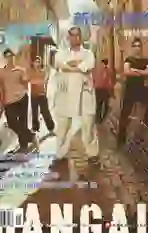直接引语与间接引语之间的“变”数
2018-11-20何烨希
何烨希

英语中带引号,直接引用别人原话的句子称之为直接引语,而用自己的话转述别人的意思,或引用自己说过的话,则称之为间接引语,间接引语多数用宾语从句来表达。将直接引语改为间接引语有许多变化,掌握这些变化的规则,就能让你运用自如。下面我们一起来看一看将直接引语改为间接引语时到底有多少变化。
一、变人称
将直接引语改为间接引语时人称要相应地改变,把直接引语中的第一人称(如:1,me,my,mine,we,us,our,ours)变为与主句的主语相一致的人称。
例如:He said,“I enjoy the movie very much.”他说:“我非常喜欢这部电影。”
→He said that he enjoyed the movie very much.他说他非常喜欢这部电影。(I改为he)
把直接引语中的第二人称(you,your,yours)变为和主句的间接宾语(即听话人,如无听话人,可根据上下文的理解人为确定一个人称)相一致的人称。
例如:He said,“You told me this terrible news.”他说:“你告诉过我这个糟糕的消息。”
→He said that I had told him that terrible news.他說我告诉过他那个糟糕的消息。(You改为I,me改为him)
直接引语中的第三人称(he,him,his,she,her,hers, it,its, they, their, theirs,them)变为间接引语时,人称不变。如:He said to me,“She's left her book on your desk.”伯对我说:“她把书放在你的桌上了。”
He told me that she had left her book on my desk.他对我说她把书放在我的桌子上了。(she不变,her不变,your改为my)
二、变时态
如果主句的时态是一般过去时,从句的时态则应是与主句时态相应的过去时态。①一般现在时→一般过去时;②一般过去时→过去完成时;③现在进行时-过去进行时;④现在完成时→过去完成时;⑤过去完成时→过去完成时(不变);⑥一般将来时→过去将来时。一般情况是:时态向后退一格。例如:
The secretary said,“I'm sorry for being late for work.”→The secretary said that she was sorry for being late for work.
注意:1.直接引语变为间接引语时,如果主句中的谓语动词是一般现在时或一般将来时,则间接引语从句的时态保持不变。例如:
He says,“I have finished my homework.”→He says that he has finished his homework.
She will say,“I'll do it tomorrow.”→She will say that she'II do it the next day.
2.直接引语如果是客观事实或真理,变为间接引语时,从句时态不变。例如:
The teacher said,“The earth moves around the sun.”→The teacher said that the earth moves around the sun.
三、变动词
一般说来,主句谓语动词常为said或said to,变为间接引语时,如直接引语是陈述句,said不变;如直接引语是一般疑问句或者特殊疑问句,则要把said或said to变为asked/asked sb.。
需要特别注意的是,直接引语句中的come, bring需在间接引语中改为go,take。
四、变指示代词、时间状语和地点状语
将直接引语改为间接引语时,相关的时间状语、地点状语和指示代词都要做相应的变化,具体变化可见下表:
例如:
1.He said,“l met your sister today.”他说:“我今天遇到你姐姐了。”
→He said that he had met my sister that day.他说他那天见到我姐姐了。
2.He said,“We went to the cinema yesterday.”他说:“我们昨天去看电影了。”
→He said they had gone to the cinema the day before.他说前一天他们去看电影了。
3.He said,“It is already two o'clock now.”他说:“现在已经两点了。”
→He said that it was already two o'clock then.他说那时已经两点了。
4.He said,“My sister was here three days ago.”他说:“三天前我妹妹在这儿。”
→He said that his sister had been there three days before.他说三天前他妹妹在那儿。(here→there; ago—}before)
5。Mr.Smith said,“I will come here this evening.”史密斯先生说:“今晚我会来这儿。”
→Mr.Smith said that he would go there that evening.史密斯先生说那晚他将去那儿。(come→go; here→there; this→that)
注意:以上这些变化,要根据说话的具体时间和具体地点的情况而定,不可机械照搬。如果就在当地转述,here就不必改为there,come也不必改为go,如果就在当天转述,yesterday或tomorrow等时间状语也不必改变。直接引语中的一般过去时如与一个具体的过去时间状语连用,间接引语的一般过去时时态不变。
例如:Father said,“I am free this afternoon.”父亲说:“我今天下午有空。”
→Father said that he was free this afternoon.父亲说他今天下午有空。
He said,“I am coming here tomorrow.”他说:“我明天来这里。”
He said that he was coming here tomorrow.他说他明天来这里。
五、不同句式中直接引语改为间接引语的变化
1.直接引语如果是陈述句,间接引语应改为由that引导的宾语从句,that往往可以省略。
例如:She said,“Our bus will arrive in five minutes.”
→ She said (that) their bus would arrive in five minutes.
2.直接引語如果是反意疑问句、选择疑问句或一般疑问句,间接引语应改为由whether或if引导的宾语从句。
例如:He said,“Can you swim,Jack?”他说:“你会游泳吗,杰克?”
→He asked Jack if he could swim.他问杰克会不会游泳。
“You have finished the homework,haven't you?”my mother asked.“你已经做完作业了,是吗?”我妈妈问道。
→My mother asked me whether l had finished the homework.我妈妈问我是否已经做完作业。
“Do you go to school by bus or by bike?”“你上学坐公交还是骑车?”
→He asked me if I went to school by bus or by bike.他问我上学是坐公交还是骑车。
3.直接引语如果是特殊疑问句,间接引语应该改为由疑问代词或疑问副词引导的宾语从句(宾语从句必须用陈述句语序)。
例如:She asked me,“When do they usually get up in the morning?”她问我:“他们早上通常什么时候起床?”
→She asked me when they usually got up in the morning.她问我他们早上通常什么时候起床。
4.直接引语如果是祈使句,间接引语应改为tell(ask,order, beg等)sb. (not) to do sth.句型。
例如:“Don't touch any thing here,”she said to her students.“别碰这里任何东西。”她对她的学生说。
→She told (ordered) her students not to touch anything there.她告诉她的学生别碰那里任何东西。
“Bring me a cup of tea,please,”said his mother.“请给我一杯茶。”他妈妈说。
→His mother asked him to bring her a cup of tea.他妈妈让他给她一杯茶。
Practice
1. "Hello, how are you?", he said to me.
2. Tom said to me angrily, "Why don't you tell me you have been here for two weeks?"
3. John said to Mary, "Do you remember I borrowed a diamond necklace from you?"
4. The teacher said to Li Ming, "Don't make the same mistake again."
5. "Are you leaving today or tomorrow?" I asked her.
6. The nurse said to the children, "The sun rises in the east."
答案
1. He asked me how I was.
2. Tom asked me angrily why I didn't tell him I had been there for two weeks.
3. John asked Mary if she remembered he had borrowed a diamond necklace from her.
4. The teacher told Li Ming not to make the same mistake again.
5. I asked her whether she was leaving that day or the next day.
6. The nurse told the children that the sun rises in the east.
